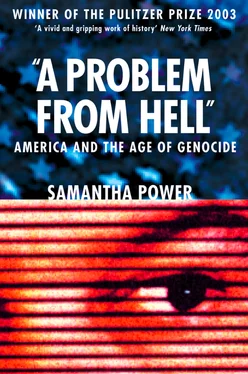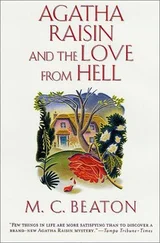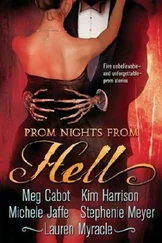Becker’s description proved too bold for most American Cambodia observers. Sydney Schanberg of the New York Times faulted her for running a story without ever having toured KR territory. Since it was the KR that denied access, she said she could not ignore the horror stories simply because she could not see for herself. She told Schanberg, “We have to publish what we can find out.” Back in the United States, she was severely criticized by both the right and left. U.S. government officials said she had been duped into believing the KR were not Vietnamese puppets, whereas leftist intellectuals chided her for falling for Central Intelligence Agency (CIA) warnings of an imminent KR-induced bloodbath. Much more serious than any of these criticisms was another consequence of the research: Her close friend and colleague Ishiyama Koki followed up his story on Sarin’s diary by attempting to become the first journalist to visit the KR side. “It was strange,”Becker recalls. “The sum result of my learning more about the Khmer Rouge was that I knew I never wanted to see these guys up close. The sum result for Koki was that he wanted to meet them and learn more.” Koki vanished behind KR lines, as did another of Becker’s Japanese colleagues shortly thereafter.
For the remainder of 1974 and into 1975, journalists attempted to shed light upon the KR leadership, but Pol Pot and his leading associates, Khieu Samphan and Ieng Sary, operated behind the scenes in complete isolation. With the KR resolutely unknowable, their mystery received almost as much attention as the misery they inflicted upon Cambodians. Even Lon Nol’s government had no idea with whom it was dealing. In April 1974, when the Khmer Rouge’s Khieu Samphan visited New York, Becker’s reports focused not on what Samphan had to say at the United Nations but on whether he was in fact Samphan, who was rumored to have been executed by Prince Sihanouk. Becker wrote:“Some Cambodians say he is too fat in the photos, his voice is too high, and that he gave only one speech in French in Pyongyang, which they find suspicious since he holds a doctorate in economics from Paris.” 24The sternly secretive Khmer Rouge bewildered even the most informed Cambodia observers.
The presence of the soothing Sihanouk at the head of the KR front also continued to throw people off. As one Western diplomat put it, “They know it is Sihanouk’s army out there and they think once that army gets inside everything will be all milk and honey—or rice and dried fish if you will—again.” 25In 1974 Sihanouk sent several Democrats in the U.S. Congress a letter in which he described rumors of an imminent Khmer Rouge massacre of Lon Nol and his supporters as “absurd.” Sihanouk assured the legislators that the KR front would not establish a socialist republic upon taking power, “but a Swedish type of kingdom.” 26His was the public face of the coalition, but it was difficult to judge whether the public face had influence over the private soul of the movement.
However worrying the rumors that swirled before the KR victory, few Cambodia watchers grasped what lay ahead before it was too late.
Wishful Thinking
As foreigners collected their impressions of the Khmer Rouge, they deferred, as foreigners do, to the instincts of their local friends and colleagues. If anybody had the grounds to anticipate systematic brutality, it seems logical that it would be those most immediately endangered.Yet those with the most at stake are in fact often the least prone to recognize their peril. The Cambodian people were frightened by the reports of atrocities in the KR-occupied countryside, but they retained resilient hope.
Françcois Ponchaud was a French Jesuit priest who spoke Khmer and lived among the Cambodians. He heard the chilling local gossip that preceded the KR’s capture of Phnom Penh. “They kill any soldiers they capture, and their families too,”Cambodians said. “They take people away to the forest,” they warned. But in the mental duel that was fought in each and every Cambodian’s mind, it was the concrete features of a horrifying, immediate war that won out over the more abstract fear of the unknown. The toll of the civil war on Cambodia’s civilians had been immense. Some 1 million Cambodians had been killed. 27Both sides got into the habit of taking no prisoners in combat, unless they planned to torture them to extract military intelligence. Cannibalism was widespread, as soldiers were told that eating the livers of captured enemies would confer the power of the vanquished upon the victor. The country’s rice crop had been obliterated. More than 3 million Cambodians had been displaced, causing the population of the capital to swell from 600,000 to over 2 million by 1975. The daily privations were such that Cambodians naturally preferred the idea of the KR to the reality of Lon Nol. Moreover, most assumed that the KR excesses were the product of the heat of battle, and not the result of ideology or innate callousness. The most ominous warnings about the KR were dismissed as Lon Nol propaganda. As Ponchaud later noted, “Khmers were Khmers, we thought; [the KR] would never go to such extremes with their own countrymen. Victory was within their grasp: what psychological advantage could they gain by taking wanton reprisals?” 28
The kinds of conversations that went on in Phnom Penh in the months preceding its fall resembled those that Lemkin had struck up as he toured eastern Poland, Latvia, and Lithuania as a refugee during World War II. Why would Hitler round up defenseless people? Why would he divert precious resources from the eastern front during World War II so that he could finish them off? Because the extermination of the Jews constituted its own victory, and it was the triumph for which he was sure he would be remembered. Similarly, Pol Pot would treat as discrete policy objectives the eradication of those associated with the old regime, as well as the educated, the Vietnamese, the Muslim Cham, the Buddhist monks, and other “bourgeois elements.”Violence was not an unfortunate byproduct of the revolution; it was an indispensable feature of it. But like so many targeted peoples before them, Cambodians were consoled by the presumption of reasonableness.
As the KR rebels closed in on the capital, ordinary people dared to visualize the end of deprivation, bombs, and bullets. Once the civil war between Lon Nol and the KR ended and they were rid of foreign interference, they told themselves, they could return to their Buddhist, peaceable heritage. Since high politics was the province of the elite, most Cambodians assumed that the politicians would settle scores with the “traitorous clique” of seven senior officials in the Lon Nol government and everybody else would be left alone, free at last to resume normal life. “I have no ideas about politics,” My Vo, a twenty-nine-year-old Cambodian, was quoted as saying two weeks before Phnom Penh fell to the KR. “I am just a man in the middle…If this side wins, I’ll be an office assistant. If the other wins, I’ll be an office assistant. I don’t care which side wins.” 29What mattered to Cambodians was that the fighting stop.
Having known only conflict for five years, the Cambodians considered the KR promise of peace an appealing alternative. The Communists talked about justice to a people who had known nothing but injustice. They spoke of order to a people who knew only corruption. And they pledged a brighter future free of imperialists, whereas the Lon Nol government promised only more of the dim present. Having watched their leaders cozy up to the United States and the United States repay them by bombing and invading their country, Cambodians longed for freedom from outside interference.
Major U.S. newspapers reflected the optimistic mood. Once the KR won the war, Schanberg wrote, “there would be no need for random acts of terror.” 30He, too, made rational calculations about what was “necessary.” He recalls:
Читать дальше












